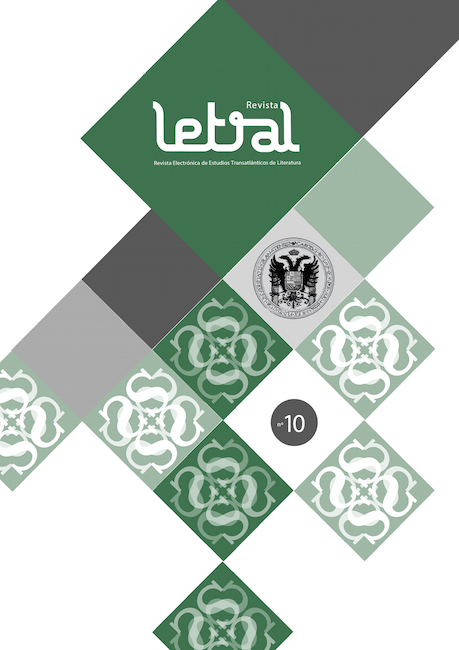Reading through art for the worlds to come. A pedagogical take on the ever-present (and ever-pressing) question what can art do?
DOI:
https://doi.org/10.30827/rl.v0i10.3736Resumen
"Art education seems to be ubiquitous lately. Creativity, innovation, and multiple intelligences are generally celebrated concepts. It is almost politically incorrect to conceive of a curriculum, in any field whatsoever, that lacks a minimum amount of ‘artistic’ exposure. Some even argue that the now old STEM focus for education (science, technology, engineering, math) should mutate into a more up-to-date and fashionable STEAM (science, technology, engineering, art, math)..."Descargas
Citas
(31 Oct. 2012.) "Art of the Possible: An Interview with Jacques Rancière - Artforum.com / in Print." Web.
Balibar, Etienne, and Quadrige (2002). Droit De Cité. Presses Universitaires deFrance - PUF. Print.
David, Catherine, and Jean-Francois Chevreir (1997). Documenta X: The Book. Hatje Cantz Publishers. Print.
Huizinga, Johan (1949). Homo Ludens : a Study of the Play-element in Culture.London: Routledge & K. Paul. Print. International Library of Sociology and Social Reconstruction.
Malabou, Catherine (2001). Que Faire De Notre Cerveau? Seconde édition.Montrouge: Bayard. Print.
Nancy, Jean-Luc. La Communauté Affrontée. Paris: Galilée, 2001. Print. CollectionLa Philosophie En Effet.
____ (2002). La Creation Du Monde, Ou, La Mondialisation. Galilee, Paris. Print.
____ (2001). Le Sens Du Monde. Editions Galilee. Print.Rancière, Jacques. Malaise Dans L’esthetique. GALILEE. Print.
____. Le Maître Ignorant. Fayard. Print.
____ (2009). Aesthetics and Its Discontents. 1st ed. Polity. Print.
____ (2000). Le Partage Du Sensible : Esthétique Et Politique. La Fabrique. Print.
____. Politique De La Littérature. Editions Galilée. Print.
____ (2001). The Emancipated Spectator. Reprint. Verso. Print.
Descargas
Publicado
Cómo citar
Número
Sección
Licencia
La Revista Letral es una publicación de acceso abierto e inmediato totalmente gratuita, tanto para quien lee como para quien publica. Los autores y las autoras no pagan ningún tipo de tasa por el proceso editorial de sus artículos. Permitimos la lectura, descarga, copia, distribución, impresión, búsqueda, enlace o reutilización con fines no comerciales de todos los trabajos publicados, siempre que se citen la autoría, la revista y el órgano editor. Recomendamos encarecidamente la difusión de los artículos en redes sociales (Facebook, Twitter, LinkedIn, etc.) y científicas (ResearchGate, Academia.edu, etc.), repositorios institucionales universitarios y otros repositorios públicos, blogs y webs personales o institucionales, Google Scholar, ORCID, ResearchID, ScopusID, etc. En cualquier caso, la propiedad intelectual de los artículos y los posibles derechos económicos derivados de ellos son exclusivamente de sus autores.
















